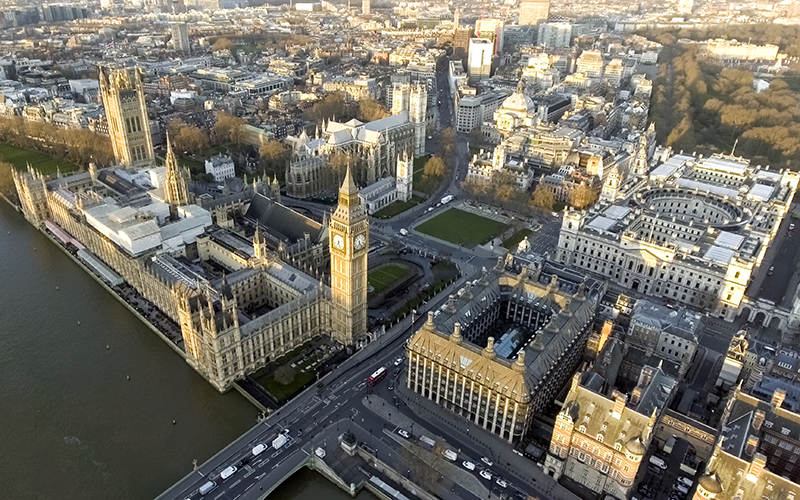
Westminster, London. Image © PhotoLondon/iStock
Plans to alter the planning rules to enable more homes to be converted into holiday lets have been criticised by London’s leaders.
In the first major skirmish after the local elections, members of London Councils have written to levelling up secretary Michael Gove call for a halt to proposals to alter the permitted development rights rules.
The government wants to include properties already converted and operating as short-term lets, such as AirB&B properties, to be included in a new planning category.
But the councils say this will reduce the number of badly-needed homes in the capital, which in turn will add to their costs of providing temporary accommodation.
London Councils estimates there are at least 43,000 short-term lets in the capital – equivalent to one in every 85 London homes.
And in effect enables illegal dwellings to circumvent local decisions. Some are also not covered by council tax if they are within the boundary of an existing home – cutting the income local authorities get.
Cllr Darren Rodwell, London Councils’ executive member for regeneration, housing and planning, said: “For too many years the short-term lets market has been growing out of control.”
“With housing and homelessness pressures in the capital worse than ever, boroughs are extremely concerned about losing permanent housing stock. The priority has to be ensuring homes are available for long-term residents,” he added.
“We welcome the government’s move to improve regulation of the sector, but the blanket reclassification of existing short-term lets into a new use class could strip the capital of thousands of homes.”
The Society of Local Council Clerks has also raised concern: “We are deeply concerned and strongly oppose the government’s continued desire to extend permitted development rights further. We, and many other organisations and individuals, have highlighted the negative and undesirable consequences of the incremental expansion in permitted development rights.
“In particular, it undermines decision making and democratic and consultation processes as it removes the need for planning approval. Permitted development is associated with ad hoc, poor quality development that does not reflect local need nor is locally distinctive.”
The government has also today passed controversial new rules covering rural properties. Already dubbed the ‘Clarkson clause’ after TV presenter Jeremy Clarkson, agricultural buildings can now be converted without planning permission into shops – or up to 10 houses.
Planning minister, and former local government minister Lee Rowley, said: “This is all part of our Long-term Plan for Housing to deliver more homes for rural communities and reform the planning system, removing unnecessary barriers to development.”










